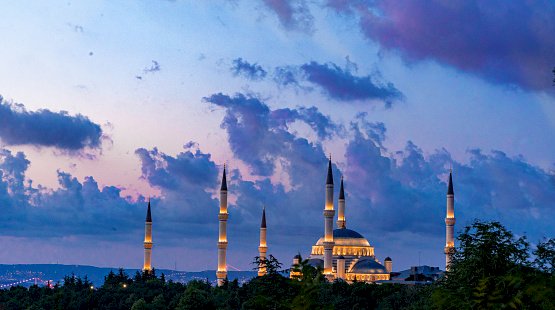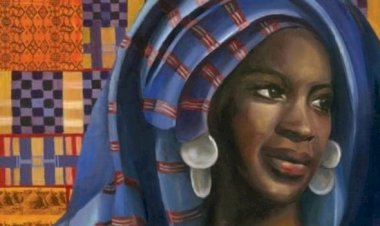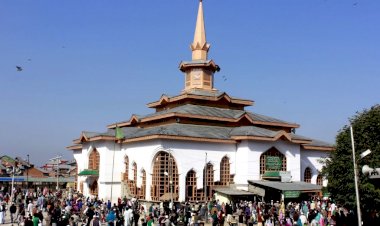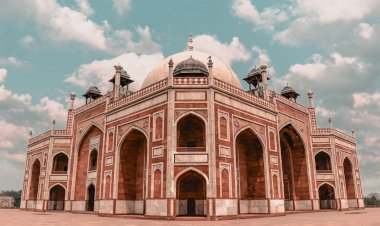Muslim World: Its Glorious Past and Today’s Reality
Dr. Mohd Abbas Abdul Razak & Dr. Machouche Salah
In the distant past, the Muslim world was booming with new ideas in the areas of natural, social and revealed sciences. Muslim empires established many centres of learning and research for Muslims and others as well. The main epicentres for research and learning at that time were located in Baghdad, Cordoba, Damascus and Cairo. The Baitul Hikmah in Baghdad happened to be the largest library that housed many hundred thousand books. Experts in the ancient manuscripts among Muslims, Jews, Christians and Zoroastrians were recruited by the Abbasid rulers to teach, conduct research, and produce works of translation from Greek, Aramaic, Persian, Sanskrit and other ancient languages into Arabic.
The Arabic language was the lingua franca for learning science, mathematics and philosophy. It has been said that Ibn Rushd (1126-1198) who was known as the ‘Prince of Science’ was the first scholar to capture Aristotle’s ideas on rational philosophy. Ibn Rush read it in Greek and translated it into Arabic. Europeans who were struggling for a long time to understand Aristotle’s philosophical ideas felt helped by reading Ibn Rushd’s commentaries. Besides Ibn Rushd, the works of Al- Kindi (801-873), Al-Farabi (870-950), Ibn Sina (980-1037), Al-Ghazali (1058-1111), Ibn Khaldun (1332-1406) and many others caught the attention of the West. It is an undeniable historical fact that in many ways the Muslim world has contributed a great deal in providing the rudimentary ideas for the later development of modern science and technology in the West.
The Muslim World Needs to Move on
It is human nature to reflect on past events in our lives. Likewise, as a community, we become nostalgic for recalling events of the past, namely our heroic, historical and meritorious achievements. Such events normally linger in our minds for a lifetime and they are very hard to be deleted from our memories. Remembering them during special occasions can revitalize our spirit and, in a way, gives us the impetus to perform better in the future. On the contrary, using those achievements to defend ourselves from criticisms that come from others all the time will be an act of counterproductivity. In our observation, we have noticed that for a very long time till today, in many of our learning institutions throughout the Muslim world, scholars and students keep harping on the great contributions made by past Muslim scholars and scientists.
The names Ibn Sina as the first doctor who performed an eye operation and whose books; Qanun fil- Tib and Kitab al-Syifa were used for many hundred years as reference books in most European universities, Al-Khawarizmi (780-847) as the inventor of algebra and trigonometry, Ibn Haytham (965-1040) as the father of optics, Zakariya al-Razi (864-925) who made the distinction between smallpox and measles, and many more names of Muslim scholars are mentioned again and again.
Present-day Muslims should not be apologetic for failing to perform well in the areas of science and technology by saying that the pioneering efforts in those two fields came from our scholars. Since we are living in an ever-changing world that sees groundbreaking research on a daily basis, we should take the challenge to compete with others in creating a better world. It would not be an ideal thing for Muslims to be mere spectators, while others are laboriously involved in research works. As vicegerents of God (Khalifatullah) we are required to be actively involved in scientific investigation, social work, charity, volunteerism, etc.
Today’s Reality in the Muslim World
Unlike other communities of the world, the Muslim world is saddled with a lot of problems. At times, such problems can be seen as obstacles for the Muslim world from taking a forward march in life. Below here are some of the problems we think that is holding back the Muslim Ummah:
- Wars and Sectarian Violence: Ever since the demise of the Holy Prophet SAW there has been a division among the Muslim Ummah and the matter started to widen during the time of the Four Rightly Guided Caliphs and got worse after two centuries later. With the end of the Golden Era in the Muslim World, the division of the masses became more obvious. It broke into many fractional groups that quarrelled and disputed over things which have no real significance. Not only that, during the modern era in the Muslim world, sectarianism brought disunity within the Ummah. The warring parties should realize that war, terror attacks and violence are things discouraged by the Qur’an. In Islam, war is only approved when the community or country comes under attack by external forces.
- Lacking in Good Governance:
After the death of the Prophet SAW and the Four Rightly Guided Caliphs, the Muslim world has hardly seen any good leaders, except for personalities like Imam Hussein (626-680), Salahuddin al-Ayyubi (1137-1193), Sultan Muhammad al-Fateh (1432-1481) and Tippu Sultan (1751-1799). Looking into the profile of the Muslim Ummah, one would realize that for a very long there has been a leadership crisis. It is very hard to find leaders who are committed to their Islamic principles and give preference to their people more than to their personal glory. Today’s leaders are occupying the seat of power to fulfil their personal ambition and agendas.
- Migration to the West: The lives of civilians in Muslim countries that are ravaged by war and sectarian violence, migrate to the West for their safety and security. As asylum seekers, expecting kindness and mercy shown to them makes them indigents in a foreign land, while prior to that they were living comfortably surrounded by families, friends, and olive and date palms of their own. The sad thing is that no one knows what the future holds for them. Definitely, as Muslims, they have to face the cultural shock there and are perhaps forced to adjust to an alien culture and value system that is very different from their Islamic ones.
- Lacking in the Areas of Science and Technology: Though once we were the torchbearers in shedding light and acting as an inspiration for the Renaissance scholars that brought Europe out from its dark ages, at the moment, we are dependent on others in the areas of science and technology. It is an erroneous way of thinking on the part of some affluent Muslim countries that they can buy everything with their petrodollars, including technology from countries in the West, Japan and Korea. If the initial stage of buying technology is not seen as altogether bad for the reason it is something new, but definitely, at a later stage, those Muslim countries should negotiate for a transfer of technology from the advanced countries. It can be easily done by getting talented young people in those Muslim countries to learn and to be trained by the technology manufacturing countries. Another thing that needs to be highlighted here is the fact that Muslim countries are failing to produce any new, innovative and original ideas of their own. In a retrospective manner, if we look at the profile of the Ummah (Muslim world), we will be surprised to witness that Muslims who led others into creativity, scientific inquiries and progressive thoughts are now being led by others.
The Way Forward
In realizing the many pressing issues faced by the Ummah, we call upon Muslim leaders and policy-makers to pay attention to the needs of their people. The government in Muslim countries should make peace and coexistence their priority in avoiding racial and sectarian clashes. Leaders should make peace negotiations as preference in resolving territorial disputes and misunderstandings among their neighbours. When all the uncalled wars stop in the Muslim world, then it can allocate a huge budget for education, scientific research and scholarship for their talented and deserving students.
Teachers at academic institutions in the Muslim world should not only talk about the past glory of the Ummah, but should inspire the upcoming generations to be productive and creative like the scholars of the Golden Era of the Muslims. By doing so, they would be able to produce the budding Ibn Sina, Al-Ghazali, Ibn Khaldun, Ibn Rushd and the like of the 21st century.
Leaders in the Muslim world should realize that their nations can be great not only by economic wealth but also with ideas that can move their nations towards a more Islamic and progressive direction. The economic power of a nation alone doesn’t make it a strong nation. As such, all physical, intellectual and economic developments in Muslim countries should strike a balance with moral and spiritual developments.
The masses in the Muslim world should not only focus on preparing themselves for salvation in the afterlife and neglect to take charge of their worldly affairs. In line with the emphasis of the Qur’an (Surah Qasas:77), today’s Muslims around the globe should aim for a good life in this world and the next. A proper understanding of the Qur’an and the Sunnah of the Prophet SAW demands the Muslim community wherever they are to be diligent, hardworking, productive, intellectual, critical and creative in order to face modern-day challenges. Only by taking the aforementioned proactive actions, Muslim countries and the Ummah would able to see the much-needed transformation in the Muslim world.
About authors:
Dr. Mohd Abbas Abdul Razak: Assistant Professor, Dept. of Fundamental & Inter-Disciplinary Studies, Kulliyyah of Islamic Revealed Knowledge & Human Sciences, IIUM.
Dr. Machouche Salah: Assistant Professor, Dept. of Fundamental & Inter-Disciplinary Studies, Kulliyyah of Islamic Revealed Knowledge & Human Sciences, IIUM.
Disclaimer
The views expressed in this article are the author’s own and do not necessarily mirror Islamonweb’s editorial stance.
























Leave A Comment